What is a Family Child Care Provider?
Family child care providers offer care in their own home to one or more children who aren’t related to the provider. To ensure a safe environment, Maryland limits the number of children in a family child care home:
Family Child Care Home – A provider may care for up to eight children with no more than two under the age of two. The provider’s own children under the age of six are counted within the group of eight.
Large Family Child Care Home – A provider may care for between nine and 12 children with no more than four under the age of two. The provider’s own children under the age of six are counted within the group of nine to 12.
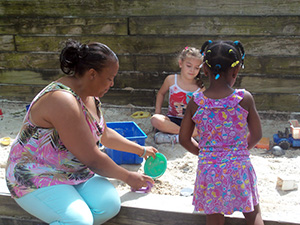 Family child care is regulated under the Code of Maryland Regulations COMAR 13A.15, which require that you obtain a "certificate of registration" (which is a form of license) before you operate a family child care program. Being registered means your program meets the child health and safety requirements established by the state. It also makes you eligible for tax deductions, certain food subsidies, and liability insurance. These benefits make your family child care home more appealing to parents, which is also good for your business.
Family child care is regulated under the Code of Maryland Regulations COMAR 13A.15, which require that you obtain a "certificate of registration" (which is a form of license) before you operate a family child care program. Being registered means your program meets the child health and safety requirements established by the state. It also makes you eligible for tax deductions, certain food subsidies, and liability insurance. These benefits make your family child care home more appealing to parents, which is also good for your business.
What about before and after school care?
As a licensed provider, you are eligible to provide care for children during the hours you have been approved for -- including before they attend school and in the hours after school before their parents get of work.
Do you want to become a family child care provider?
Watch our slideshow “How to become a family child care provider” to learn about the step-by-step process of becoming a family child care provider in Maryland.
Is this the career for you?
Being a family child care provider is both rewarding and challenging. Before you set out on this path, ask yourself the following questions:
- Do I enjoy working with children?
- Am I knowledgeable about child development or willing to learn?
- Am I interested in running a competitive business in my own home?
- Would I like to be able to set my own hours and/or wages?
- Can I afford to lose income and/or benefits while my business grows?
If you answered “yes” to all of these questions, you may have the interests and skills needed to start a family child care business. Read on.
Contact Us
Connect with your Regional Licensing Office to learn about the licensing process and find out when the next Orientation sessions will be scheduled.

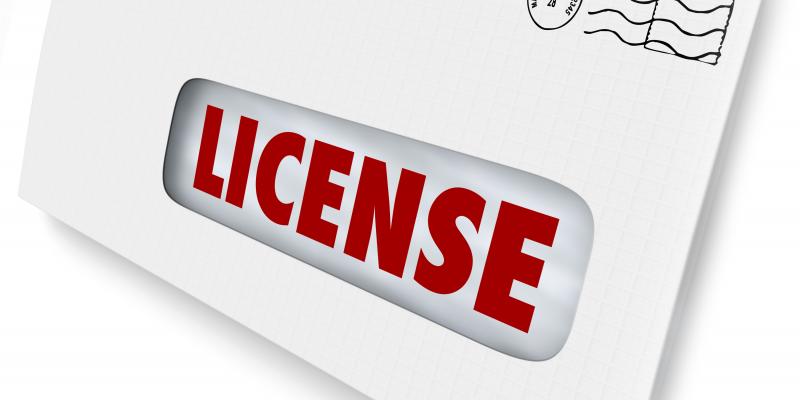
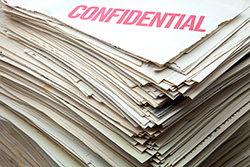 The orientation session informs you about the application process and the requirements you’ll need to meet to receive a certificate of registration. During the session, you will learn about the forms to complete:
The orientation session informs you about the application process and the requirements you’ll need to meet to receive a certificate of registration. During the session, you will learn about the forms to complete:
 In addition, you also need to complete the following requirements, all of which will make you a better provider for the children in your care:
In addition, you also need to complete the following requirements, all of which will make you a better provider for the children in your care: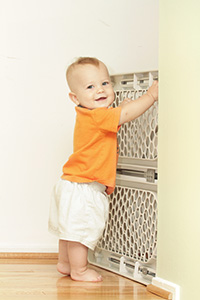 A safe physical environment is important for child care no matter what the age of the children. Examples of how you can make sure your home is "child safe" include:
A safe physical environment is important for child care no matter what the age of the children. Examples of how you can make sure your home is "child safe" include: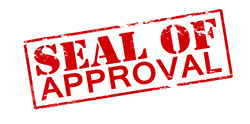 All pre-service training courses must be approved by the OCC. Before you sign up for a course, check with the Regional Licensing Office to make sure the course has been approved. See the
All pre-service training courses must be approved by the OCC. Before you sign up for a course, check with the Regional Licensing Office to make sure the course has been approved. See the .jpg) A safe physical environment is important for child care no matter what the age of the children. Examples of how you can make sure your home is "child safe" include:
A safe physical environment is important for child care no matter what the age of the children. Examples of how you can make sure your home is "child safe" include: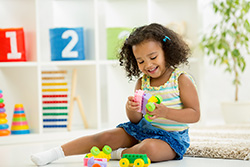 Making sure your home is properly equipped for child care is essential for your program. Here are examples of the equipment family child care providers usually need:
Making sure your home is properly equipped for child care is essential for your program. Here are examples of the equipment family child care providers usually need: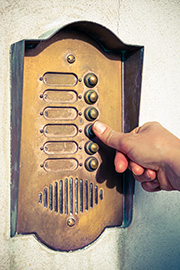 Once everything is in place, at least two home inspection visits will be made. First, an OCC licensing specialist will make sure your home meets family child care regulations. The licensing specialist will review the Self Assessment Guide with you and answer any questions you have. Your home will be inspected by the local fire authority.
Once everything is in place, at least two home inspection visits will be made. First, an OCC licensing specialist will make sure your home meets family child care regulations. The licensing specialist will review the Self Assessment Guide with you and answer any questions you have. Your home will be inspected by the local fire authority..jpg) After all requirements have been met and all inspections have been passed, the OCC Regional Licensing Office will issue a certificate of registration to you.
After all requirements have been met and all inspections have been passed, the OCC Regional Licensing Office will issue a certificate of registration to you.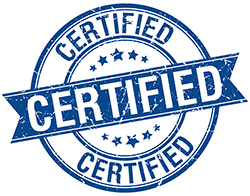 All newly registered family child care homes are authorized to operate for a period of two years. At the end of that period, a continuing (i.e., non-expiring) registration may be issued. You must submit an application for continuing, non-expiring status. A non-expiring registration may also be placed on probationary status if the family child care provider does not comply with the requirements. If failure continues, the provider's registration may be suspended or revoked.
All newly registered family child care homes are authorized to operate for a period of two years. At the end of that period, a continuing (i.e., non-expiring) registration may be issued. You must submit an application for continuing, non-expiring status. A non-expiring registration may also be placed on probationary status if the family child care provider does not comply with the requirements. If failure continues, the provider's registration may be suspended or revoked. All registered family child care homes are routinely inspected at least once every 12 months. All inspections are unannounced “drop-in” visits that determine whether the requirements and child needs are being met.
All registered family child care homes are routinely inspected at least once every 12 months. All inspections are unannounced “drop-in” visits that determine whether the requirements and child needs are being met. As soon as you receive your certificate of registration, you are ready to open your family child care home for business! The following are some resources that may help get your business started:
As soon as you receive your certificate of registration, you are ready to open your family child care home for business! The following are some resources that may help get your business started: